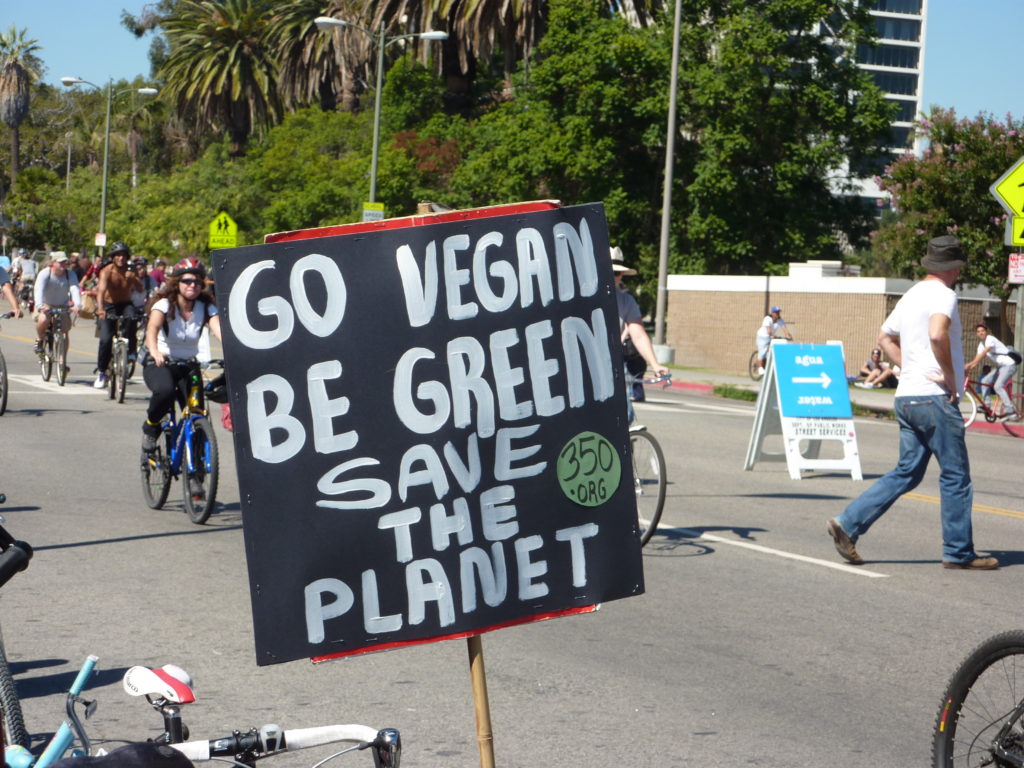Avoiding meat and dairy is the best solution for our planet
Want to contribute to a better environment? Stop eating meat and dairy. According to a new research carried out by the universities of Oxford and Zürich, avoiding these products is the single biggest way to reduce your environmental impact on the planet – even more so than cutting down on your number of flights or driving an electric car. Meat and dairy products are a highly inefficient food source: they use 83% of the world’s farmland, despite providing only 18% of food calories.

The research is the most detailed analysis yet of the severe environmental damage caused by agriculture. The researchers collected data of 40.000 farms in 119 separate countries and looked at all aspects of the production of 40 different food products.
Farmland
According to the study, on which The Guardian wrote an extensive article, farmland use is a major problem. If consumers around the world would stop consuming animal products, global farmland use could be reduced by 75% – an area equivalent to the US, China, Australia and the EU combined – and still feed the world. The destruction of wild areas for agriculture is the leading cause of the current mass extinction of a great many species.
Furthermore, the scientists report that meat and dairy use 83% of farmland, despite providing only 18% of our calories and 37% of our protein.
Fruits and vegetables are always the better choice
Even the lowest-impact meat and dairy products still cause much more environmental harm than the least sustainable vegetable and cereal growing.
“Agriculture is a sector that spans all the multitude of environmental problems. A vegan diet is the single biggest way to reduce your impact on planet Earth. It is far bigger than cutting down on your flights or buying an electric car, which only reduces greenhouse gases, while a vegan diet also improves the quality of soil and the use of water and farmland. Avoiding consumption of animal products delivers far better environmental benefits than buying sustainable meat and dairy,” said Joseph Poore, who led the research.
Poore acknowledged that changing our agricultural system will not be easy, but he sees opportunities: “At least 500 billion dollars are spent every year on agricultural subsidies, and probably much more. That means a lot of money is available to do something good with.”
A surprising outcome of the research was that freshwater fish farming, which was thought to be relatively environmentally friendly, also has a large environmental impact because of its methane production.